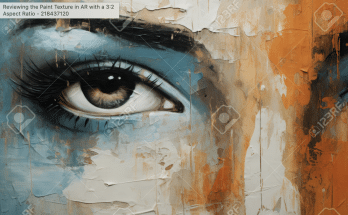The writer, director and vfx specialist. He talks about his journey and the launch of his new film; Love and love not.
The man behind the special effects in television and movies. With an indisputable work ethic coupled with a creative mind, he is also an acclaimed writer and director.
If you haven’t heard of Anthony Cally on this side of the pond, his name is connected to some of the most iconic action movies. These include See (starring Jason Momoa) and Fast and furious 9 (Vin Diesel) for visual effects.
I love my job, especially when I meet people who cross genres, can’t be filed and build on a talent base. His writing and directing portfolio now include Waiting and Love and Love not.
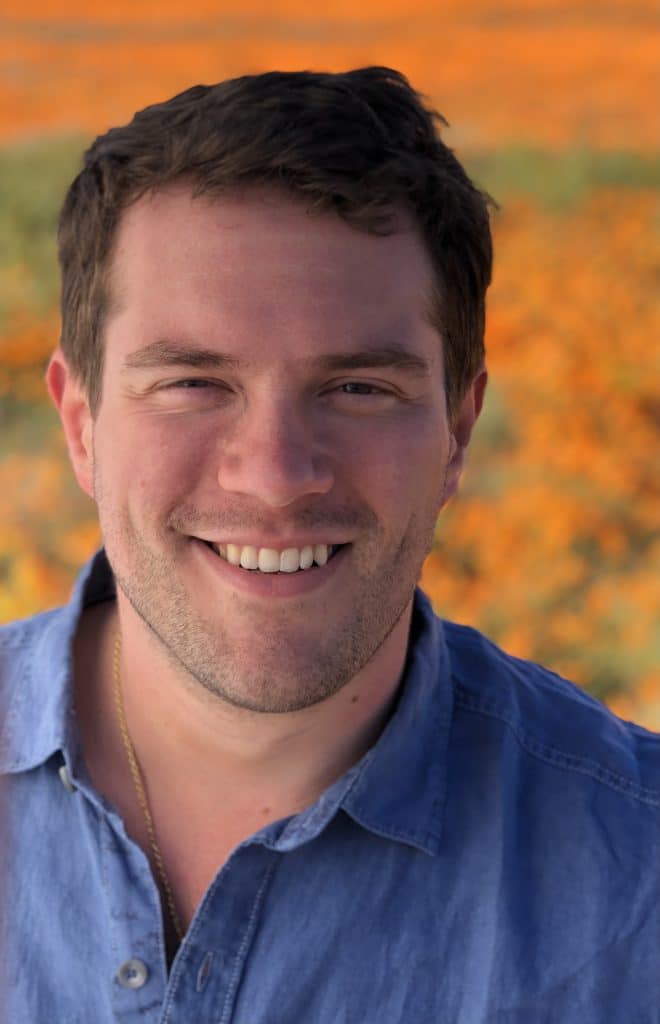
Anthony Cally Awards
His unique combination of skills has seen him pick up many notable awards. Undoubtedly a thirst to develop his writing skills will, carve a brand from his name.
The ethos that surrounds creativity flows quite naturally in Anthony, but I firmly believe his work ethic and his story will resonate with new talent. Perhaps on a level where they need to be coaxed into a complimentary genre or have doubts about taking a predefined professional path.
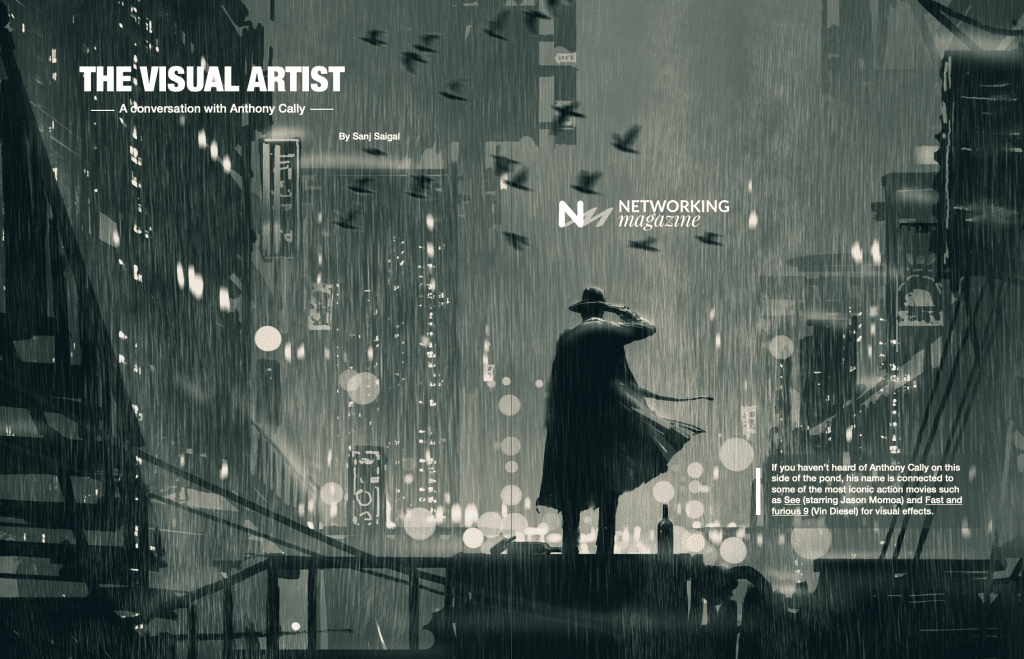
Portfolio
On a personal note, I have watched many of the projects that he has been involved with, such as Colony, Grey’s Anatomy, NCIS, The Exorcist, and Ray Donovan, to name a few. His gruelling work ethic meant that I had to be extremely patient to secure an interview with him, and so I’m very grateful that we managed to tie it down. I know that his inspiring story will motivate, inspire and resonate with our audience.
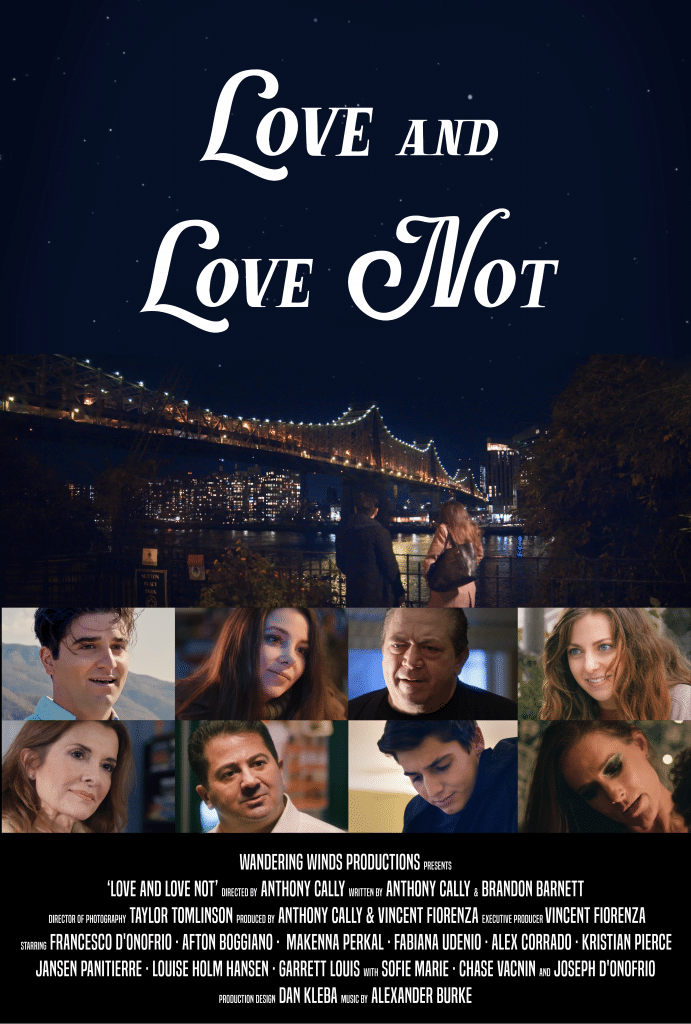
Did you find your industry, or did it find you?
I grew up in a huge cinefile and watched anything I could get my hands on. So movies were always in the back of my mind. It wasn’t until college that I seriously considered getting into the industry. I went for history, thinking I was going to be a professor of some sort with a pipe and tweed jacket. But I found the campus television station. Not long I was greenlit for my own show. That’s when I knew I needed to do work in the medium in this life.
When did you realise that you had a talent?
I’m not sure if there was a singular moment where I thought I had talent. I just knew that this was something I needed to do. I was hoping by trial and error; I would find some talent.
Who was your influence?
My favourite directors are Akira Kurosawa, Federico Fellini and Martin Scorsese. The idea that Someone like Kurosawa, whose culture, land, and influence is something that I have no real connection to ( being from Japan like he was) but being so moved by his people and struggles made me realise just how magical cinema was. And how connected we all are, how we all have similar human trials. How he makes a film is like every frame being a beautiful canvas that belongs in a museum. If Fellini is the maestro, that Kurosawa is the master, and I consider him my teacher, the guru I never got to meet.
Did you meet with any resistance from family or friends?
I felt embarrassed that I wanted to go into this since it’s such a tall climb to the top or to the level that we all dream of getting to. I remember when I first said it out loud, my mother said, “oh boy”, but it’s easy to laugh it off now since I’ve had stable work for years as a senior vfx coordinator.
If you met the younger version of yourself, what advice would you give?
It might be cliche, but I’d remind myself of the same advice that my uncle used to always tell me, “stop and smell a rose”. When you’re running and trying to get somewhere in your career and personal life, you can lose sight of what’s in front of you. I couldn’t grasp what my uncle was talking about then. But, as I face down a looming “0” at another birthday in the next couple of years, I now know exactly what he means.
If I asked your best friend to describe you, what would they tell me?
Maybe you should ask them? Kidding aside, I guess they’d say I’m someone who gets particularly focused and obsessed with an idea or a project. I need to see it to its completion. So for more tidbits, give him a drink, and I’m sure he could tell you a few good stories.
How has your industry changed over the last five years? Why?
I’ve been out here for six years now. Coming out here, I didn’t even know what a C-stand was. So being able to work on sets, hop from different teams, and jump from television to features allowed me to have a sort of Oz behind the curtain feel. Like seeing how the sausage is made. But I’ve always been the curious type, and I’ve always been obsessed with the movies, so seeing the sausage factory doesn’t deter me from continuing to eat the sausage.
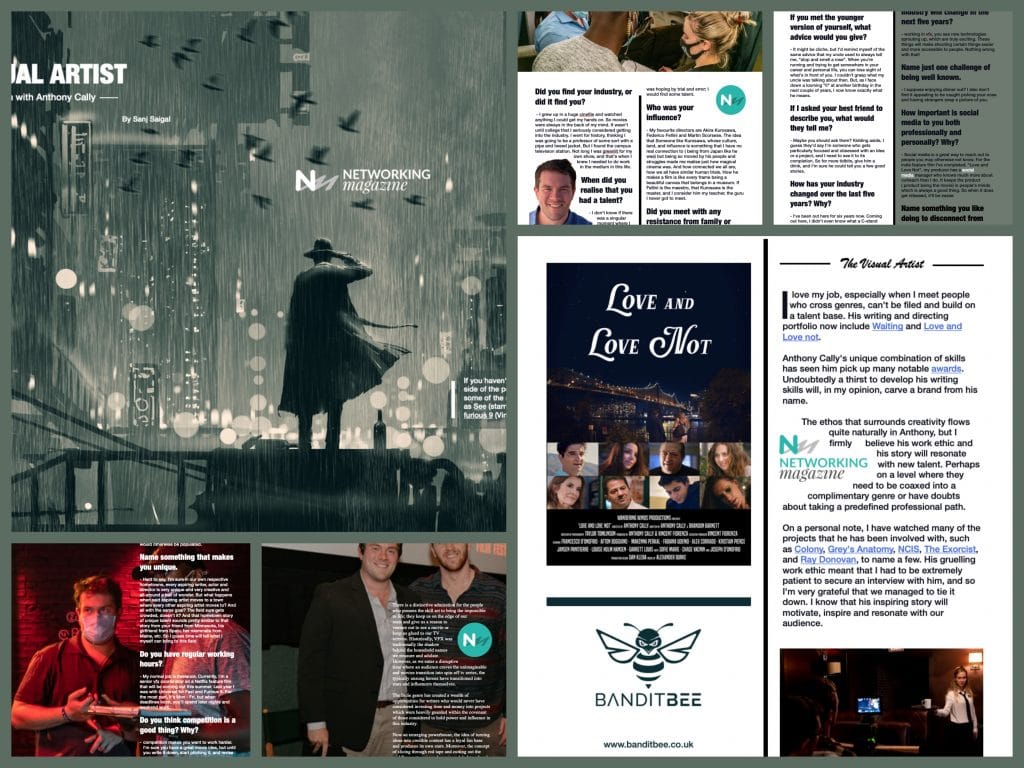
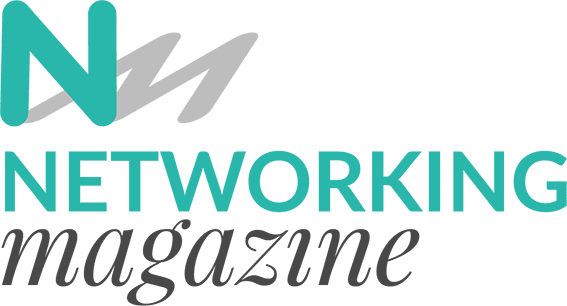
How do you think your industry will change in the next five years?
Working in vfx, you see new technologies sprouting up, which are truly exciting. These things will make shooting certain things easier and more accessible to people. Nothing wrong with that!

Name just one challenge of being well known.
I suppose enjoying dinner out? I also don’t find it appealing to be caught picking your nose and having strangers snap a picture of you.
Is social media important to you both professionally and personally? Why?
Social media is a great way to reach out to people you may otherwise not know. For the indie feature film I’ve completed, “Love and Love Not”, my producer has a social media manager who knows much more about outreach than I do. It keeps the product ( product being the movie) in people’s minds which is always a good thing. So when it does get released, it’ll be easier.
Name something you like doing to disconnect from work.
The open road is something I like. Day trips with good music ( with the “Get Back” documentary out, been doing a lot of Beatles and solo Lennon stuff) and the windows down. In the early days of the Pandemic, I took a 32-day road trip to get away from everything. It was nice to see American life for that period of time. The wannabe historian in me came out, and I took snapshots of everything I could in places that would otherwise be populated.
The greatest pleasure in life is doing what people say you cannot do.- Walter Bagehot
What makes you unique.
Hard to say. I’m sure in our own respective hometowns, every aspiring writer, actor and director is very unique. They are very creative and all-around a ball of wonders. But what happens when said aspiring artist moves to a town where every other aspiring artist moves to? And all with the same goal? The field sure gets crowded, doesn’t it? And that hometown story of unique talent sounds pretty similar to that story from your friend from Minnesota, his girlfriend from Spain, her roommate from Maine, etc. So I guess time will tell what I myself can bring to this field.
Do you have regular working hours?
My normal job is freelance. Currently, I’m a senior vfx coordinator on a Netflix feature film that will be coming out this summer. Last year I was with Universal for Fast and Furious 9. For the most part, it’s Mon – Fri, but when deadlines loom, you’ll spend later nights and weekend work.
Is competition a good thing? Why?
Competition makes you want to work harder. I’m sure you have a great movie idea, but until you write it down, start pitching it, and revise revise revise, you’re not going to get anywhere.
How has the Pandemic affected your industry?
Incredibly fortunate, I was able to keep my job for most of the first year of the Pandemic since Fast 9 was already in post-production. So we just started working from home. But it took a long time for things to open up again, for many people whose shows were ending couldn’t get onto new things as soon as they’d like.
A disruptive time
There is a distinctive admiration for the people who possess the skill set to bring the impossible to life; they keep us on the edge of our seats and give us a reason to venture out to see a movie or keep us glued to our TV screens. Historically, VFX was traditionally the shadow behind the household names we treasure and adulate. However, as we enter a disruptive time where an audience craves the unimaginable and movies transition into spin-off tv series, the typically unsung heroes have transitioned into stars and influencers themselves.
Love and love not by Anthony Cally
The Indie genre has created a wealth of opportunities for writers who would never have considered investing time and money into projects. These were heavily guarded within the covenant of those considered to hold power and influence in this industry.
Now an emerging powerhouse, the idea of turning ideas into credible content has a loyal fan base and produces its own stars. Moreover, the concept of slicing through red tape and cutting out the middle man to coin a phrase is a global trend and one that is here to stay.
On behalf of the Networking Magazine, we wish Anthony the very best for his upcoming movie (currently in the process of getting distribution and the film festival circuit), Love and love not, and hope to catch up soon to hear about ongoing projects.
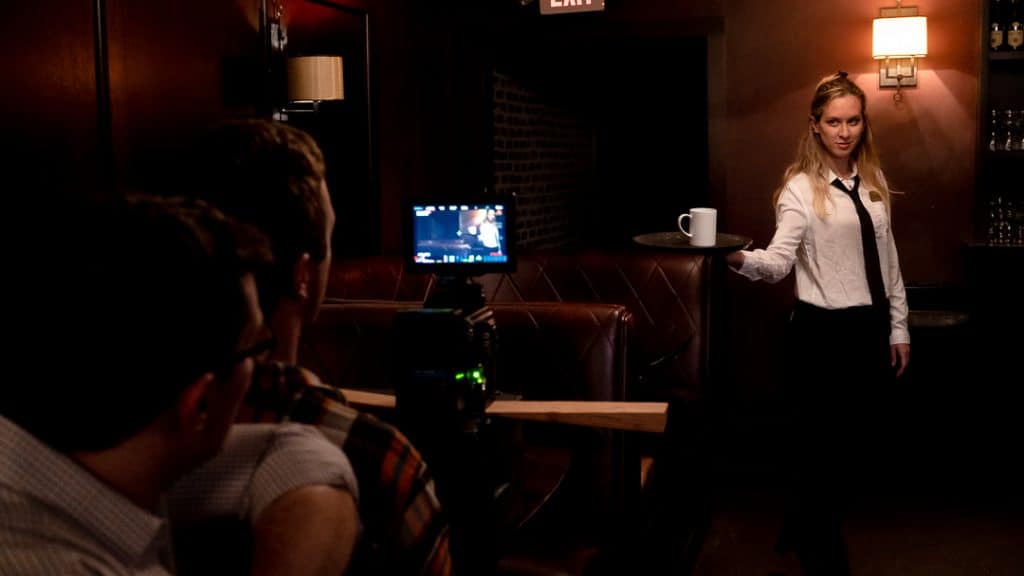
Photo attributions
Love and love not movie poster – @mlnlca – Minica Casbara
The waiting bts photo (woman with coffee cup) –




